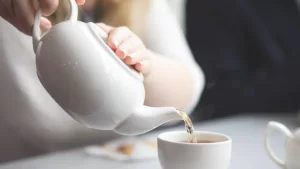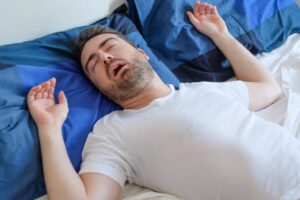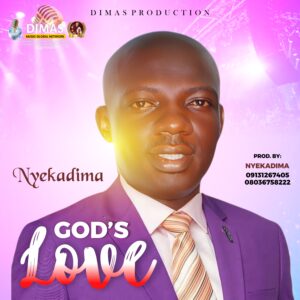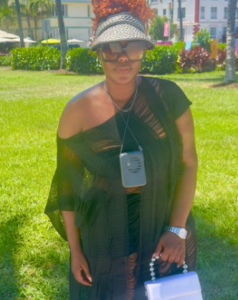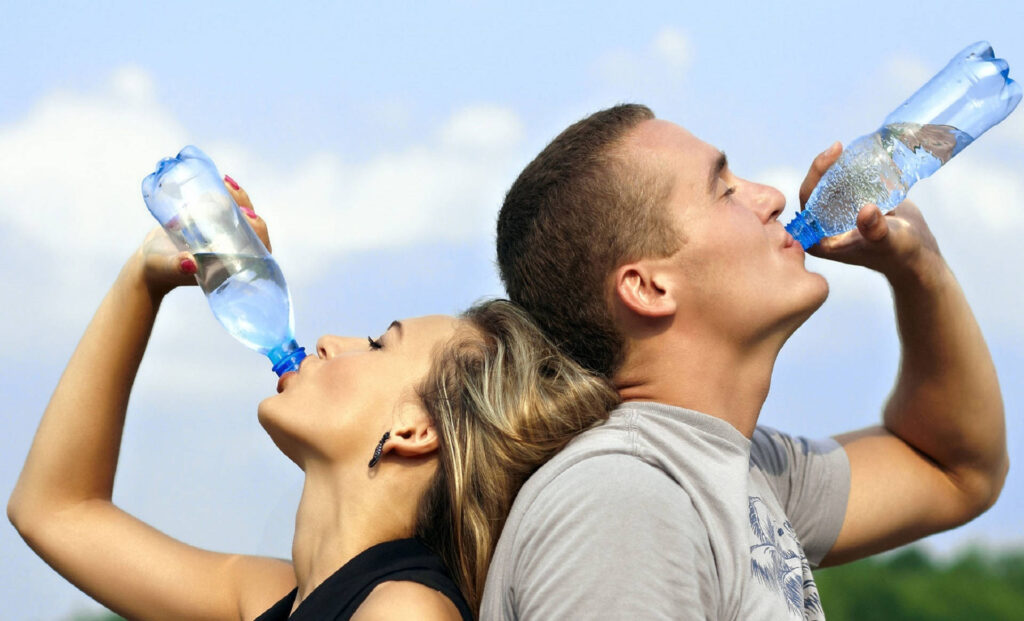
Share this
Blood pressure is the measurement of the force the heart applies against artery walls as it propels blood to the body. Healthcare providers use two numbers to measure your blood pressure; a normal reading, for example, is 120/80mm Hg.
The top number (120) shows the pressure in blood vessels when the heart is beating, and it’s called systolic pressure. The bottom number (80) measures diastolic pressure, the force of blood in the arteries while the heart is relaxed between beats.
High blood pressure is when blood flow through the arteries is higher than usual. The other name for this is hypertension. Normal pressure is usually 120/80 and below, while high blood pressure is 130/80, marking stage I of the condition.
Stage II high blood pressure is 140/90 or higher. Anything more than 180/110 is abnormally high and requires immediate medical treatment.
The higher your blood pressure is, the higher your risk of having other health problems like heart attack, heart disease, and stroke.
What to know about drinking water for high blood pressure
If you struggle with high blood pressure, the chances are that you have been looking for ways to lower it. There’s no single solution to lowering your blood pressure, nor is there a cure.
Still, you can make lifestyle changes to bring your blood pressure down. Something as simple as keeping yourself hydrated by drinking six to eight glasses of water every day improves blood pressure.
Water makes up 73% of the human heart,¹ so no other liquid is better at controlling blood pressure. Studies show that adding minerals like calcium and magnesium to your drinking water can further enhance its impact on lowering blood pressure.
If you find it hard to drink enough water, consider trying:
-
Sugar-free sparkling water
-
Water infused with lemon, cucumber, or fruit slices
-
Smoothies made with vegetables and fruits
-
Decaffeinated herbal tea
-
Low-sodium soup
-
Milk
Potential benefits of drinking water for high blood pressure
When your body doesn’t get enough water, it becomes dehydrated. Dehydration makes blood thicker because of reduced water content. It causes your blood pressure to spike up or down.
While research on the link between dehydration and high blood pressure needs additional studies, lack of water in the body can lead to vasopressin secretion. High vasopressin amounts cause the blood vessels to constrict, leading to increased blood pressure.
Vasopressin is a hormone the body secretes when a high amount of sodium is in the blood. In other cases, the body secretes the hormone when blood volume is low. Both conditions can occur when you lose too much fluid. In response, the kidneys reabsorb water when you’re dehydrated instead of passing it as urine.
Drinking plenty of water to keep your cells and organs hydrated may reduce the risk of vasopressin secretion, decreasing the risk of high blood pressure. But how much water should you drink each day?
In general, you should take six to eight glasses of water each day. However, your daily fluid intake recommendations depend on several factors, including:
-
Age
-
Sex
-
Weight
-
Overall health condition
-
Weather conditions
-
Activity levels
-
Whether pregnant or breastfeeding
Other proven natural remedies for lowering high blood pressure
High blood pressure is usually a long-term medical condition with little or no symptoms. However, your doctor will likely put you on medication to lower blood pressure upon diagnosis.
Medication for hypertension comes in many forms, each having benefits and risks that you should carefully weigh with the help of your healthcare provider.
Besides medication, the most effective treatment for high blood pressure often starts with lifestyle changes. Some recommended changes include the following:
Aim for a healthy weight
Being obese or overweight is a risk to your blood pressure. Consult your doctor about your body mass index (BMI) to determine how much you should weigh relevant to your height.
Generally, you need to burn the same number of calories as you consume to maintain a healthy weight.
Exercise regularly
Try to commit to at least 30 minutes of exercise every day. Simple swimming or walking activities can lower high blood pressure with time. Set goals for safe and effective exercise, but first, speak with your doctor for advice suitable to your circumstances.
Manage stress
Unmanaged stress is a driving factor for high blood pressure. Constantly being in stressful situations puts your body in a fight-or-flight mode, causing the heart to beat faster and the blood vessels to constrict. Practicing yoga and mindfulness can help reduce stress.
Eat a healthy diet
Ensure you incorporate fruits, vegetables, whole grains, and lean proteins in your diet. Consider taking some apple cider vinegar daily to help reduce high blood pressure.
Many scientific studies² recommend taking 1–2 tablespoons of apple cider vinegar mixed with a glass of water. You can also add a small amount of honey or molasses.
Cut down on salt and alcohol intake
Alcohol and salt don’t mix well with high blood pressure. Avoid them whenever possible or reduce the amount you consume.
Stop smoking
Smoking puts you at a higher risk of high blood pressure, stroke, heart disease, and other health problems. Kicking this habit will benefit your overall health.
The lowdown
There is no single solution to reducing high blood pressure. In addition to drinking more water every day, you need to adopt several lifestyle changes and maintain an active routine. It’s also crucial to keep taking your medication and see your doctor regularly to monitor your blood pressure.
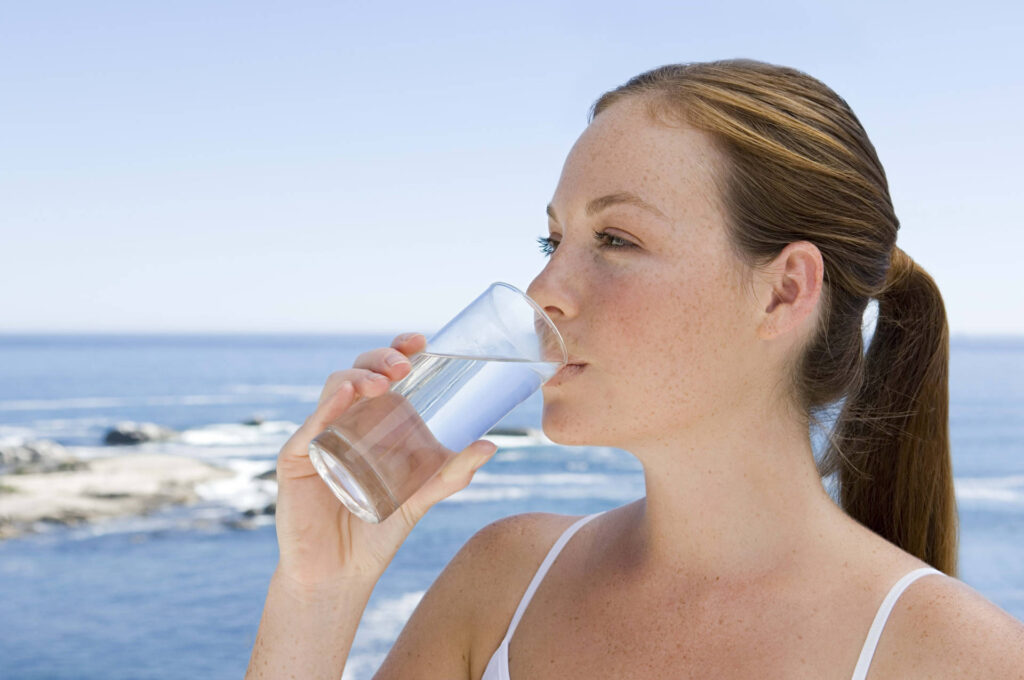
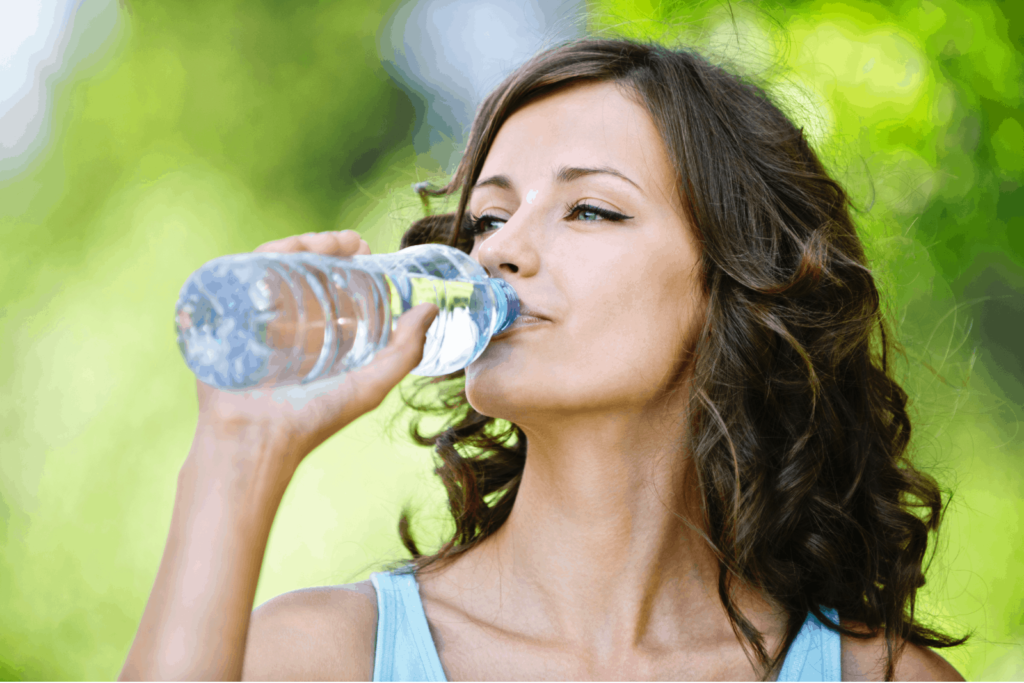
-
- How Is High Blood Pressure Diagnosed?

If blood pressure becomes elevated due to dehydration, it may be possible to help lower it by drinking water. Dehydration causes the blood to have higher than normal levels of sodium.
High blood pressure (hypertension) occurs when the force of the blood pumping through the arteries is consistently too high. When this happens, the walls of the arteries are extended beyond their normal limit, often leading to damage and scarring.
- High blood pressure (hypertension) is 140/90 mmHg or more
- Elevated blood pressure levels between 120/80 and 139/89 are considered prehypertension and mean a person is at higher risk for developing high blood pressure
- Normal blood pressure is less than 120/80 mmHg
If blood pressure becomes elevated due to dehydration, it may be possible to help lower it by drinking water. Dehydration causes the blood to have higher than normal levels of sodium.
- When this happens, the brain sends signals to the pituitary gland to secrete vasopressin, also called antidiuretic hormone.
- The vasopressin tells the kidneys to reabsorb more water, and in high enough concentrations, it can cause narrowing of blood vessels (vasoconstriction), which leads to increased blood pressure.
One study also found that adding calcium and magnesium to drinking water potentially could help lower blood pressure levels, especially in those who do not get adequate amounts of these minerals from their diets.
18 Ways to Lower Blood Pressure
The first line of treatment for high blood pressure usually involves lifestyle modifications such as:
- Eating a healthy, balanced diet low in salt
- Exercising regularly
- Maintaining a healthy weight
- Managing stress
- Limiting or avoiding alcohol
- Not smoking
- Getting adequate sleep
- Taking medications as directed
If lifestyle modifications are not enough, medications used to treat high blood pressure may include:
- ACE inhibitors
- Angiotensin II antagonists
- Beta-blockers
- Calcium channel blockers
- Centrally-acting alpha adrenergics
- Combination medicines
- Diuretics (“water pills”)
- Peripherally acting alpha-adrenergic blockers
- Renin inhibitors
- Vasodilators
What Are Symptoms of High Blood Pressure?
High blood pressure (hypertension) is often referred to as “the silent killer” because many people who have it don’t have any symptoms. The only one way to know if you have high blood pressure is to have a health professional measure it.
Severe high blood pressure can in rare cases cause or be accompanied by symptoms such as:
- Headaches
- Vomiting
- Facial flushing
- Dizziness
- Blood spots in the eyes (subconjunctival hemorrhage)
- More common in people who also have diabetes
What Causes High Blood Pressure?
Risk factors for developing high blood pressure (hypertension) include:
- Family history
- Age
- Gender
- Up to age 64, men are more likely to develop high blood pressure
- At age 65 and older, women are more likely to develop high blood pressure
- Race: African-Americans tend to develop high blood pressure more frequently than people of other races in the U.S.
Risk factors for developing high blood pressure include:
- Unhealthy diet, particularly one high in salt (sodium), calories, saturated and trans fats, and sugar
- Being overweight or obese
- Sedentary lifestyle
- Excess alcohol intake
- High cholesterol
- Diabetes
- Untreated obstructive sleep apnea
- Smoking and tobacco use
- Stress
How Is High Blood Pressure Diagnosed?
Blood pressure is measured with a pressure cuff (sphygmomanometer).
- The cuff is placed around the upper arm and then manually or electronically inflated.
- When it is inflated the cuff compresses the brachial artery, the major blood vessel of the upper arm, briefly stopping blood flow.
- The air in the cuff is then released slowly while the person performing the measurement listens with a stethoscope or monitors an electronic readout.
Adults 20 years of age and older should have their blood pressure checked during regular doctor visits.

Keeping well hydrated by drinking 6-8 glasses of water daily (even more if working in hot and humid conditions) is beneficial for the blood pressure.
Keeping well hydrated by drinking 6-8 glasses of water daily (even more if working in hot and humid conditions) is beneficial for the blood pressure.
High blood pressure (BP) or hypertension is a condition caused by the persistent high pressure of blood against the walls of arteries. It is also called systolic pressure (constantly greater than 139 mmHg) or diastolic pressure (constantly more than 89 mmHg). High blood pressure occurs when the body’s smaller blood vessels (arterioles) become narrow, forcing the heart to work harder to push blood through arteries. It typically develops over several years and is often asymptomatic. The higher the blood pressure, the higher the risk for a person to have other health problems, such as heart disease, heart attack and stroke.
Dehydration has the following effect on blood pressure:
- Causes the blood to become thicker or viscous due to the reduced water content in the blood.
- Causes the kidneys to release renin. This results in sodium and water retention in the body to correct the low fluid volume. This response, if constant, can cause blood pressure to be high.
- Causes the release of vasopressin hormone in the brain. This causes the blood vessels to narrow and sodium retention in the body. This results in high blood pressure.
If these effects remain constant in the body due to continuous dehydration, the brain trains itself to maintain a blood pressure higher than normal so that the organs receive blood supply. These changes over a longer period cause hypertension. Uncontrolled hypertension requires medical attention and treatment.
Essential hypertension
In 95% of high blood pressure cases, the underlying cause is unknown. This type of high blood pressure is called “essential hypertension.” High blood pressure tends to run in families and is more likely to affect men than women. Essential hypertension is also greatly influenced by diet and lifestyle. Most people with high blood pressure are salt sensitive, and a slight increase in salt intake may increase their blood pressure.
Secondary hypertension
When a direct cause for high blood pressure can be identified, the condition is described as secondary hypertension. Among the known causes of secondary hypertension, kidney disease ranks the highest. Hypertension can also be triggered by tumors or other abnormalities that cause the adrenal glands to secrete excess amounts of the hormones that elevate blood pressure. Birth control pills (specifically those containing estrogen) and pregnancy can boost blood pressure.
Natural remedies to lower blood pressure and preventive measures
Healthy lifestyle changes can help control the factors that cause hypertension. Some of the most common home remedies include:
- Healthy diet: A heart-healthy diet is vital for helping to reduce high blood pressure. It’s also important for managing hypertension and reducing the risk of complications. The foods are
- Fruits
- Vegetables
- Whole grains
- Lean proteins, such as fish
- Exercise: Increasing physical activity and maintaining a healthy weight is one of the best practices to lower high blood pressure. Regularly exercising makes the heart stronger and more efficient at pumping blood, which lowers the pressure in the arteries.
- Managing stress: Stress is a key driver of high blood pressure. Being in stressful situations repeatedly makes the body to be in a constant fight-or-flight mode. On a physical level, this causes a faster heart rate and constricted blood vessels. Practicing yoga, deep breathing and meditation helps manage stress.
- Cleaner lifestyle: Smoking and alcohol consumption are considered strong risk factors for heart disease. The chemicals in tobacco are also known to damage blood vessels. Also, people who drink excessive alcohol have a higher risk of developing hypertension. Quitting smoking and limiting alcohol consumption have been proved to be beneficial in lowering blood pressure.
- Herbs: Parsley, basil, celery seeds, garlic, thyme and cinnamon are found useful in reducing the systolic and diastolic blood pressure by relaxing the blood vessels, lowering cholesterol and low-density lipoproteins (LDH). They are also enriched in antioxidants and vitamin C. Also, they act as calcium channel blockers and angiotensin-converting enzyme (ACE) inhibitors.
- Reducing dietary sodium: Increased sodium intake has been directly associated with the occurrence of high blood pressure. People with hypertension and those with an increased risk for heart disease may need to keep their daily sodium intake between 1,500-2,300 mg per day.
How can I lower my blood pressure immediately?

High blood pressure (BP) can be lowered with measures such as reducing stress
High blood pressure (BP) is dangerous. It can lead to many health problems, including heart disease, brain stroke, kidney disease, vision loss, sexual dysfunction, and more. Below are a few common ways to reduce BP immediately:
- Staying calm: Too much stress or worries may shoot BP. Being calm can actually reduce BP. Sit down and focus on breathing. Take a few deep breaths and hold them for a few seconds before releasing them. Deep slow breathing can help lower your stress levels, thereby bringing down the BP. One of the main reasons why BP shoots up is erratic breathing patterns during times of stress. That’s why deep breathing helps in lowering hypertension and regulating BP. Practicing yoga and meditation along with slow breathing every day may give better results simultaneously. Make stress reduction a priority.
- Dark chocolate: Eating a piece of dark chocolate may help in reducing BP because they help in releasing endorphins (chemicals produced by the body to relieve stress and pain). Dark chocolate is also rich in antioxidants and polyphenols, which have been shown in some studies to reduce BP. It is however recommended to stick to smaller amounts of dark chocolates and choose dark chocolate that has at least 70% cocoa content.
- Hibiscus or chamomile tea: A cup of hibiscus or chamomile tea may also help in relieving stress and reducing BP. However, it should not be taken with black tea or coffee.
- Berries: Berries have many health benefits, and one of them is improving BP and reducing other heart disease risks. Berries, such as strawberries, raspberries, blackberries, and blueberries, have lots of polyphenols, which are great for the heart. They’re also really tasty. We may also add them to a smoothie made with low-fat or fat-free yogurt without added sugar.
- Lie down: It’s harder for the heart to pump blood when you are standing up straight. It has to work against gravity to send blood upwards all over your body. When a person lies down, the heart and head are at the same level, so it doesn’t have to pump very hard. This will help reduce the load on the heart and lower the BP.
- Sleep: Not getting enough sleep or rest can cause BP to increase. An individual may require at least six hours of sleep every night. Sleep helps in regulating stress hormones, bringing down the BP naturally.
What type of food is recommended to control blood pressure?
As per the American Heart Association and American College of Cardiology, a person has high blood pressure (BP) if their BP is more than 130/80, which means that nearly half of all adults may need to lower their BP.
Below are a few common diet changes that can help in controlling BP:
- Moderate sodium reduction: BP in hypertensive individuals can be lowered with a reduction in salt intake, keeping it to below 1500 mg.
- Olive oil: Olive oil may be one of the most important ingredients of a healthy diet. It is packed with antioxidants and polyphenols that have various health benefits, including the reduction of BP. Cooking veggies with olive oil also allows your body to absorb fat-soluble vitamins K, A, D, and E. It is always recommended to opt for a quality extra-virgin olive oil for maximum health benefits.
- Flaxseeds: Several studies have shown that flaxseeds are a powerful superfood when it comes to reducing hypertension. They contain α-linolenic acid, an essential omega-3 fatty acid, that has been found to reduce BP. They can also be sprinkled on salads, smoothies, or baked goods.
- High-potassium and magnesium-rich foods: Unless you have poor kidney function, a potassium-rich diet helps lower BP. Potassium helps the kidneys flush sodium out of your system, which in turn can cause your BP to decrease. Potassium-rich foods include spinach, orange, papaya, grapes, and banana. Some other high-potassium foods to try are melons, apricots, leafy green vegetables, tomatoes, potatoes, sweet potatoes, tuna, salmon, beans, nuts, seed, Swiss chard, and white beans. Smoothies with banana, spinach, and avocado can also be considered a snack or breakfast. Magnesium may also help in relaxing the blood vessels, making it easier for the blood to pass through. Foods rich in magnesium include vegetables, dairy, chicken, legumes, and whole grains.
Apart from the aforementioned options, limiting alcohol consumption, maintaining weight as recommended for height, exercising daily, and avoiding smoking are the best ways to lower BP in the long term.
What Is High Blood Pressure (Hypertension)? Symptoms
What Is Hypertension?

Hypertension is high blood pressure, a very common condition in older adults. Blood pressure is the physical force exerted by the blood as it pushes against the walls of the arteries. Blood pressure readings are written in two numbers separated by a line. The top number represents the systolic blood pressure and the bottom number represents the diastolic pressure. The systolic blood pressure is the pressure in the arteries as the heart contracts pushing the blood forward. The diastolic pressure is the pressure in the arteries as the heart relaxes.
Normal blood pressure is below 120/80. New guidelines from the American Heart Association (AHA) and the American College of Cardiology (ACC) published in November of 2017 consider blood pressure elevated between 120/80 and 129/80. High blood pressure or hypertension is now classified as stage 1 if your systolic reading falls between 130 and 139 or your diastolic reading is between 80 and 89. A measure of 140/90 or higher is now considered stage 2 hypertension. A hypertensive crisis is defined as a systolic rate over 180 or a diastolic rate above 120. An elevated blood pressure means that the heart must work harder to pump blood. High blood pressure can also damage the walls of the arteries. Over time, hypertension increases the risk of heart disease, kidney disease, and stroke. It is estimated that one in three adults in America are affected by hypertension.
High blood pressure is more common in older people. At age 45, more men have hypertension than women. By age 65, this is reversed and more women are affected. People with diabetes have a greater risk of hypertension than those without diabetes. Having a close family member with high blood pressure also increases your risk of developing it. About 60% of all people with diabetes also have hypertension.
What Are the Symptoms and Signs of Hypertension?

Hypertension may not produce any symptoms, even if you have had it for years. That’s why it is sometimes referred to as a “silent killer.” It’s estimated that 1 out of every 5 people with high blood pressure aren’t aware that they have this major risk factor for strokes and heart attacks. If not properly treated, high blood pressure can damage the heart and circulation, lungs, brain, and kidneys without causing noticeable symptoms. Symptoms of high blood pressure may be present in those who have an extremely high blood pressure. Symptoms of extremely high blood pressure include the following:
- Severe headaches
- Fatigue
- Vision problems
- Chest pain
- Difficulty breathing
- Irregular heartbeat
- Blood in the urine
- Pounding in the chest, neck, or ears
What Causes a Hypertension?

Blood pressure is given as a reading of two numbers, such as 110/70. The higher number (systolic) is the pressure when the heart beats. The diastolic, or lower number shows the pressure between the heartbeats, while the relaxed heart is refilling with blood. Normal blood pressure readings are lower than 120/80. The cause of most hypertension is unknown. Occasionally, conditions of the kidney or adrenal gland are the cause of high blood pressure.
There are several factors that may cause high blood pressure, but the exact cause is unknown. The following factors may increase one’s risk for high blood pressure:
- Smoking
- Overweight or obesity
- Lack of physical activity
- Too much salt consumption
- Too much alcohol consumption (more than 1 to 2 drinks per day)
- Stress
- Older age
- Genetics
- Family history of high blood pressure
- Chronic kidney disease
- Adrenal and thyroid disorders
- Sleep apnea
Early Warning Sign: Elevated Blood Pressure

An elevated blood pressure reading means that your blood pressure falls just above the normal level, corresponding to a systolic pressure between 120 and 129 or a diastolic pressure of 80 or less. The new guidelines eliminate the previous category of prehypertension. About one-fourth of Americans have elevated levels and they have two times the risk of heart disease compared with those who have lower blood pressures. Lifestyle changes can help many people with prehypertension lower their blood pressure.
Causes
Factors that increase your blood pressure can cause elevated levels. Medications such as birth control pills, cold remedies, decongestants, over-the-counter pain relievers, and some prescription drugs may cause a temporary rise in blood pressure. The buildup of fatty deposits in the arteries (atherosclerosis) can also lead to prehypertension. Other conditions that may lead to prehypertension include the following:
- Obstructive sleep apnea
- Kidney disease
- Adrenal disease
- Thyroid disease
Symptoms
There are usually no symptoms with elevated blood pressure. The only way to keep track of your blood pressure is to visit your doctor regularly and have your blood pressure checked.
Treatment
If elevated blood pressure levels are accompanied by diabetes, kidney disease, or cardiovascular disease, your doctor may suggest blood pressure medication as well as lifestyle changes. If elevated levels are your only condition, lifestyle changes can help prevent blood pressure from rising. The following are lifestyle changes that may help lower blood pressure:
- Losing weight if overweight or obese
- Eating a healthy, low-salt diet
- Exercise regularly
- Limit alcohol consumption
- Quit smoking
What Is a Malignant Hypertension?

You are considered to have hypertension if your systolic blood pressure measurements are between 130 and 139 or your diastolic measurement falls between 80 and 89. At this level of blood pressure you may not have any symptoms. When blood pressure reaches 180/120 or higher, a serious condition known as a malignant hypertension or hypertension crisis may occur. This can lead to stroke, kidney damage, heart attacks, or loss of consciousness. If you measure your blood pressure and it is this high, rest a few minutes and measure again. If it remains high, call 911.
Malignant Hypertension Causes
High blood pressure is the main cause of malignant hypertension. Skipping doses of blood pressure medications can also lead to malignant hypertension. The following are medical conditions that may cause malignant hypertension:
- Kidney disease
- Collagen vascular disease
- Spinal cord injuries
- Tumor of the adrenal gland
- Birth control pills
- Illegal drugs (cocaine)
Malignant Hypertension Symptoms
The primary symptoms of malignant hypertension are a blood pressure of 180/120 or higher and signs of organ damage. Other symptoms of malignant hypertension include bleeding and swelling of blood vessels in the retina, anxiety, nosebleeds, severe headache, and shortness of breath. Malignant hypertension may cause brain swelling, but this symptom is very rare.
Malignant Hypertension Treatment
Malignant hypertension is a medical emergency and requires immediate treatment. Blood pressure medications will be given through an IV, in hopes of lowering blood pressure within minutes. Oral medication will be given once blood pressure has been lowered to a safe level.
What Is a Pulmonary Hypertension?

Abnormally elevated pressure in the pulmonary circulation is referred to as pulmonary hypertension. This condition affects the arteries in the lungs and the right side of the heart.
Pulmonary Hypertension Causes
Pulmonary hypertension is caused by changes in the cells that line the pulmonary arteries. These changes cause the walls of the arteries to become stiff and thick, extra tissue may also form. This can reduce or block blood flow through the blood vessels. Increased blood pressure is then caused because it is harder for blood to flow. Pulmonary hypertension can be an associated condition with scleroderma, sarcoidosis, pulmonary embolism, and dermatomyositis.
Pulmonary Hypertension Symptoms
Symptoms of pulmonary hypertension may not present themselves for months or years. Later on, symptoms become worse. Symptoms of pulmonary hypertension may include:
- Fatigue
- Shortness of breath
- Dizziness
- Chest pain or pressure
- Swelling in the ankles, legs, and abdomen
- Bluish color to the lips and skin
- Racing pulse or heart palpitations
Pulmonary Hypertension Treatment
Pulmonary hypertension cannot be cured, but treatments are available to improve symptoms and slow the progression. The following are treatments available for pulmonary hypertension:
- Blood vessel dilators (vasodilators)
- Endothelin receptor antagonists
- Sildenafil and tadalafil
- High-dose calcium channel blockers
- Soluble guanylate cyclase (SGC) stimulator
- Anticoagulants
- Digoxin
- Diuretics
- Oxygen
Atrial septostomy (open-heart surgery) and transplantation are surgical treatments that may control pulmonary hypertension, if medications are unsuccessful.
High Blood Pressure Causes by Race

African-Americans are at greater risk of developing hypertension than people of other races. African-Americans develop high blood pressure earlier in life and have more difficulty achieving blood pressure goals. Some studies suggest that African-Americans may be more sensitive to salt than other races. For those who are genetically prone to salt sensitivity, a small amount (half-teaspoon) of salt can raise blood pressure by 5 mm Hg. Dietary factors and being overweight can also raise blood pressure.
Causes by Sodium

Sodium, a chemical found in salt, raises blood pressure by promoting the retention of fluid by the body. This increases the workload on the heart. The American Heart Association recommends an upper daily limit for sodium consumption of 1,500 mg. Checking food labels and menus can help you calculate how much sodium you are consuming. Processed foods are particularly high in sodium and make up about 75% of our sodium intake. Among these, lunch meats and canned soups have some of the highest levels of dietary sodium.
Causes by Stress

Stress leads to temporary elevations of blood pressure, but there is no proof that stress causes ongoing high blood pressure. Stress may have an indirect effect on blood pressure since it can influence other risk factors for heart disease. People who are under stress tend to engage more in unhealthy habits like poor nutrition, alcohol use, and smoking, all of which can play a role in the development of high blood pressure and heart disease.
Causes by Weight

Being overweight increases the risk of getting hypertension and increases the workload required of your heart. Diets designed to control blood pressure are often designed to reduce calories as well. Most of these diets require decreasing consumption of fatty foods and sugars while increasing your intake of lean protein, fiber, fruits, and vegetables. A weight loss of just 10 pounds can make a significant difference in your blood pressure.
Causes by Alcohol

Drinking too much alcohol is a risk factor for high blood pressure. The American Heart Association guidelines recommend the consumption of no more than two alcoholic drinks per day for men and no more than one drink a day for women. One drink is defined as one 12-ounce beer, 4 ounces of wine, 1.5 ounces of 80-proof spirits, or 1 ounce of 100-proof spirits. Adults who consume more than three drinks in one sitting temporarily increase their blood pressure. However, binge drinking can lead to long-term increased blood pressure.
Causes by Caffeine

Caffeine can bring on the jitters, but there is no evidence that it can cause long-term hypertension. However, a caffeinated beverage might bring on a temporary rise in blood pressure. It is possible that caffeine could block a hormone that helps keep arteries widened, which causes blood pressure to rise. It is also possible that caffeine causes adrenal glands to release more adrenaline, causing blood pressure to increase. The exact reason why caffeine causes increased blood pressure is unknown.
High Blood Pressure During Pregnancy

Women who do not have high blood pressure before pregnancy may develop gestational hypertension or preeclampsia during pregnancy. Gestational hypertension is high blood pressure that develops in pregnancy. Gestational hypertension generally develops after week 20 of pregnancy. If not properly managed, it may develop into preeclampsia.
Preeclampsia is elevated blood pressure and the leakage of protein into the urine by the kidneys. Preeclampsia can be dangerous to both mother and baby. High blood pressure during pregnancy may lead to decreased blood flow to the placenta, placental abruption, premature delivery, or future cardiovascular disease. After the baby is born, high blood pressure during pregnancy usually returns to normal levels.
Causes by Medication

Certain medications contain ingredients that can elevate blood pressure. Cold and flu medications that contain decongestants are one example of drugs that raise blood pressure. Other kinds of medicines that can raise blood pressure are steroids, diet pills, birth control pills, non-steroidal anti-inflammatory drugs (NSAIDs), pain relief medications, and some antidepressants. Talk to your doctor about the medications or supplements you are taking that might affect your blood pressure.
What Is Portal Hypertension?

The portal venous system contains veins coming from the stomach, intestine, spleen, and pancreas. These veins merge into the portal vein, which branches into smaller vessels and travel through the liver. Portal hypertension occurs when there is an increase in the blood pressure within the portal venous system. When the vessels in the liver are blocked due to liver damage, blood cannot flow properly through the liver. This causes high blood pressure in the portal system.
Portal Hypertension Causes
Cirrhosis of the liver is the most common cause of portal hypertension. In cirrhosis, the scar tissue (from the healing of liver injury caused by hepatitis, alcohol, or other liver damage) blocks the flow of blood through the liver. Blood clots in the portal vein, blockages of the veins that carry blood from the liver to the heart, parasitic infection (schistosomiasis), and focal nodular hyperplasia are also causes of portal hypertension.
Portal Hypertension Symptoms
Symptoms of portal hypertension include the following:
- Gastrointestinal bleeding, which can cause black, tarry stools or blood in stools, or vomiting of blood
- Ascites (fluid in the abdomen)
- Encephalopathy or confusion
- Reduced levels of platelets (blood cells that help form blood clots)
Portal Hypertension Treatment
There is no treatment available for the causes of portal hypertension. However, treatment can prevent or manage the complications. Diet, medication (nonselective beta-blockers), endoscopic therapy, surgery, and radiology procedures can all help in treating or preventing symptoms of portal hypertension. If these treatments are unsuccessful in treating symptoms, transjugular intrahepatic portosystemic shunt (TIPS) or distal splenorenal shunt (DSRA) are two procedures that may reduce pressure in the portal veins. Maintaining a healthy lifestyle may help to prevent portal hypertension.
What Is High Blood Pressure in Children

Although it’s most common in older adults, hypertension can also affect children. The normal blood pressure for a child is dependent upon the child’s age, gender, and height. Your doctor can tell if your child’s blood pressure is abnormal. Children are at higher risk for hypertension if they are overweight, African-American, or if they have a family history of the condition. Children with high blood pressure may benefit from the DASH diet and taking medications. Children with high blood pressure should also maintain a healthy weight and avoid tobacco smoke.
How to Lower Blood Pressure: The DASH Diet

Dietary changes can help control blood pressure. One diet designed to promote lower blood pressure is known as the DASH diet. This stands for Dietary Approaches to Stop Hypertension. The DASH diet recommends eating more vegetables, fruits, whole grains, low-fat dairy products, poultry, nuts, and fish. Red meat, saturated fats, and sweets should be avoided. The DASH diet can lower blood pressure within 2 weeks. It can also help to reduce your intake of sodium. The following is the DASH diet suggested daily intake:
- 7-8 servings of grain
- 4-5 servings of vegetables
- 4-5 servings of fruits
- 2-3 servings of low-fat or fat-free dairy products
- 2-3 servings of fats and oils
- 2 or less servings of meat, poultry, and fish
On the DASH diet, nuts, seeds, and dry beans should be limited to 4-5 servings per week. Sweets should be limited to less than 5 servings per week.
How to Lower Blood Pressure: Exercise

Exercise is another lifestyle factor that can lower blood pressure. It’s recommended that adults get about 150 minutes per week of moderate exercise. This can include cardiovascular exercises such as walking, bicycling, gardening, or other aerobic exercise. Muscle-strengthening activities are recommended at least twice a week and stretching makes you more flexible and helps prevent injuries. Check with your doctor if you are currently inactive and want to start exercising. Make exercise fun by doing activities you enjoy or find an exercise buddy to join you!
What Is Diuretics Medication?

If diet and exercise are not sufficient to lower blood pressure, the first medications recommended are often diuretics or so-called “water pills.” These reduce sodium and fluid levels in the body to lower blood pressure. Taking diuretics means you will urinate more frequently. Sometimes, diuretics deplete potassium levels as well, which can lead to muscle weakness, leg cramps, and tiredness. Other side effects of diuretics can include elevated blood sugars in people with diabetes. Less commonly, erectile dysfunction can occur.
Natural Diuretics
Dandelion, ginger, parsley, hawthorn, and juniper may have a diuretic effect that can reduce sodium and water retention, which helps lower blood pressure. It is very important to consult with your doctor before taking any natural diuretics. Certain herbs and supplements may actually worsen your medical problems.
What Is Beta-blockers Medication?

Beta-blockers are another drug class used to treat hypertension. They block the effects of the sympathetic nervous system on the heart. This reduces the workload of the heart by requiring less blood and oxygen, which slows the heart rate. They can be used to treat other conditions as well, including abnormal heart rate (arrhythmia).
Beta-Blocker Side Effects
Side effects of beta-blockers can include the following:
- Dizziness
- Insomnia
- Fatigue
- Cold feet and hands
- Erectile dysfunction
- Slow heartbeat
- Edema (swelling in ankles, feet, or legs)
- Trouble breathing
- Depression
What Is ACE Inhibitors Medication?

ACE (angiotensin converting enzyme) inhibitors are another class of antihypertensive drugs. They reduce the body’s levels of angiotensin II, a substance that narrows blood vessels. This means that arteries are more open (dilated) and the blood pressure is lower. ACE inhibitors can be used alone, or with other medications such as diuretics. Side effects of ACE inhibitors can include skin rash, dry cough, dizziness, and elevated potassium levels. Women who are pregnant, planning to get pregnant, or breastfeeding should not take ACE inhibitors.
What Is ARBs Medication?

Angiotensin receptor blockers prevent the actions of angiotensin II on the arteries. This means the arteries stay more open and blood pressure is lowered. ARBs can take a few weeks to work. Side effects can include dizziness, muscle cramps, insomnia, and elevated potassium levels. As with ACE inhibitors, women who are pregnant, planning to get pregnant, or breastfeeding should not take ARBs.
What Is Calcium Channel Blockers Medication?

Calcium channel blockers are drugs that reduce the movement of calcium into cells of the heart and vessels. This reduces the strength of heart contractions and relaxes the arteries, allowing them to remain more open, lowering blood pressure. Side effects of calcium channel blockers can include heart palpitations, dizziness, swollen ankles, and constipation. Calcium channel blockers can be taken alone or with other blood pressure medications. They should be taken with food or milk. Because of potential interactions, those taking calcium channel blockers should avoid alcohol and grapefruit juice.
Other Medications

There are even more medication types that can lower blood pressure. Some of these are alpha blockers, vasodilators, and central alpha agonists. Your doctor may prescribe these medications if other medications have been ineffective or if you have another condition along with hypertension. Side effects can include fast pulse, palpitations, dizziness, diarrhea, or headaches.
Home Remedies and Treatment

It has been shown that meditation and other relaxation techniques can help lower blood pressure. Yoga, tai chi, and breathing exercises can also help reduce blood pressure. It’s best when these are combined with changes in diet and exercise. Tell your doctor if you are taking any herbal remedies, since some of these preparations can actually raise blood pressure or interact with your blood pressure medications. The following are supplements that may lower blood pressure:
- Coenzyme Q10 (CoQ10)
- Omega-3 fatty acids
- Amino acids
Tips for Living With High Blood Pressure Patient

Hypertension often lasts a lifetime, so following a careful management plan is essential. Keeping your blood pressure under control can lower your risk of heart disease, stroke, and kidney failure and can improve your quality of life. The following are tips to manage your blood pressure:
- Take blood pressure medicine as directed, if prescribed to you
- Increase physical activity (at least 30 minutes five days a week)
- Maintain a healthy weight
- Read nutrition labels and consume low salt and sodium foods
- Eat more fruits, vegetables, grains, and low-fat dairy
- Limit alcohol consumption
Sources:
This tool does not provide medical advice. See additional information:
© 1996-2023 WebMD, LLC. All rights reserved.
Source slideshow on OnHealth
Exercises and tips to Lower Blood Pressure
Exercise and High Blood Pressure

High blood pressure increases the risk of heart disease and stroke. High blood pressure is medically referred to as hypertension. Keys to the treatment of high blood pressure are exercise, weight management, and a healthy diet. In fact, exercising makes blood pressure medications more effective. See your doctor before starting a new fitness program.
Making Exercise Fun

Benefits of exercise can be achieved with workouts of just 30 minutes a day. Riding bikes with the kids, doing housework, gardening, using the stairs, and carrying groceries all add up to exercise that benefits your heart. Try increasing your activity by parking at the end of the lot, or walking to your destination!
Hit the Gym

Gym environments are not mandatory for your workouts. However, trainers can benefit you with safety tips and encouragement. Check with the trainer if you feel the exercise maneuver is improper or causing pains. Your routine will depend on your underlying health, your capability, and your endurance.
Strengthen Your Heart

Resistance training is beneficial in boosting your metabolic rate, reducing body fat, and increasing muscle mass. There are many ways to perform resistance training, including using weight machines, free weights, exercise bands, or abdominal crunches or curl-ups. Losing as little as 10 pounds can reduce or help prevent high blood pressure in many overweight individuals. See your doctor before starting a new weight-training program.
Can’t Take the Heat? Then Swim

Aerobic exercise that causes the heart to beat faster is important for lowering blood pressure. Try swimming at your local YMCA or fitness center if you don’t like the heat. Swimming can lower your blood pressure and pulse rate.
How Much Exercise Is Enough?

It is possible that with regular exercise, high blood pressure can be prevented or controlled. Sometimes moderate-level aerobic activities, such as brisk walking for 30 minutes a day, may be enough to decrease or eliminate medications. Exercise definitely can help medications work more effectively. Exercise itself can reduce blood pressure readings by as much as 5-15 mmHg. A gradual increase in the intensity of the workout is best for safety and effectiveness of lowering your blood pressure.
Getting Started

If you haven’t exercised in a while, start slowly to prevent injuries. Begin with 10 to 15 minutes of exercise you enjoy, such as walking around the block or on a treadmill. Increase the duration and intensity of your workout until you reach the goal of 30 minutes each day. Avoid cramming your workout routine into a couple of days in an attempt to “catch up.”
Pace Yourself to Avoid Injury

When you are new to exercise, you must pace yourself. Go low intensity and enjoy the ride up! Try yoga, cycling (leisurely), gardening, mall walking, water aerobics, or moderate swimming. Increase the intensity and duration gradually as you become more fit. Your body and your blood pressure will both be in more ideal condition.
Make Exercise Convenient

Modify your routine to match your busy schedule. Try working out while the kids are at their sports practice, before or after work, or even during your lunch break! Even if you are housebound, consider getting a stationary bike or treadmill to move your body while watching the evening news or when the baby naps.
Try Mini-Workouts

For efficiency of your time, you could do 10-minute mini-workouts at different points of your busy day. Options are up to your imagination and include jogging in place, calisthenics, or actively vacuuming your house for 10 minutes with dance music on! The three 10-minute mini-workouts are your needed 30 minutes of daily exercise — enough to help to optimize your heart’s health.
Set Up a Home Gym

No time to make it to the gym? Design a home exercise program. Purchase a step bench, free weights, exercise bands or tubes, and/or yoga or fit ball. You’ve got a gym! If you like, also get a treadmill or stationary bike to help you burn fat and build endurance. Helpful hint: try out all exercise equipment in a gym environment before purchasing your own.
Warm Up and Cool Down

Warming up before exercise and cooling down after are important for people with high blood pressure according to the American Heart Association. This allows your heart rate to increase and decrease gradually. Just walking in place or on a treadmill for 10 minutes is adequate for warming up before exercise and also for cooling down after.
Try a Heart Rate Watch

Gadgets can help you focus and stay on target. Heart rate watches let people quickly assess their pulse rate. To use one: Apply the band that comes with it onto your chest underneath your shirt. You can see your actual heart rate as you work out by looking at the watch during exercise. This is an accurate measurement and is a good alternative to taking your pulse manually. Optimal training zones for pulse rate vary significantly. Ask your doctor to recommend the best target heart rate zone (or training zone) for you.
Medication and Heart Rate

Medications used for heart problems and high blood pressure can slow your heart rate. These include beta-blockers or calcium-channel blockers. If you take these medications, see your doctor and determine the best target heart rate zone for you during exercise.
Know the Safety Tips

Be aware of your limitations! When an exercise or activity hurts, stop! If you experience dizziness or discomfort in your chest, arms, or throat — stop! Be realistic! Go slower on hot and humid days or exercise in an air-conditioned facility.
See Your Doctor Regularly

When you have been sedentary, overweight, or have a high risk of coronary heart disease or other chronic health problem, you must have your doctor’s approval before starting a fitness program. Have your blood pressure measured by a health care professional. They can advise you as to how often to have it rechecked.
Beyond Exercise: The DASH Diet

The DASH diet (Dietary Approaches to Stop Hypertension) has been shown to lower systolic blood pressure (the top number in a blood pressure reading). Studies have shown a DASH diet can reduce systolic blood pressure by as much as 14 points. The DASH diet is rich in fruits, vegetables, and low-fat dairy products and is 2,000 calories a day. DASH is also low in saturated fat, cholesterol, and total fat.
Beyond Exercise: Lose 10 Pounds

If you are overweight, losing as few as 10 pounds can help you reduce or prevent high blood pressure. Weight loss results from taking in fewer calories than you use each day. See your doctor or a registered dietitian about how many calories you need daily for weight loss. Increase your exercise to burn even more calories!
Beyond Exercise: Watch Out for Salt

National blood pressure guidelines recommend limiting sodium to no more than 2,300 milligrams a day. This is about one teaspoon of table salt or 1,500 milligrams a day. A sodium-restricted diet can lower your systolic blood pressure (top number of the blood pressure reading) 2 to 8 points. Low-salt diets can also enhance the effects of blood pressure medications. Try substituting herbs for salt when cooking, and avoid processed meats and canned foods.
Beyond Exercise: Can Alcohol Help?

The Joint National Committee on Prevention, Detection, Evaluation, and Treatment of High Blood Pressure recommends that people moderate their alcohol intake. They set the limit to no more than two drinks per day for men and no more than one drink per day for women. They define a drink as 12 ounces of beer, 5 ounces of wine, or 1.5 ounces of 80-proof liquor.


